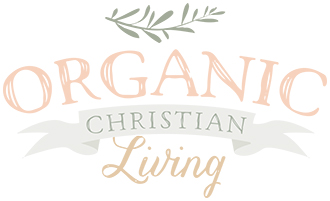Whether you’re in the produce section or browsing the cereal aisle, organic products seem to be taking up more and more space on grocery store shelves. Although this may seem like just another diet craze or marketing gimmick, it isn’t. Growing and eating organic food is not a new way of farming or thinking about food, it’s actually been around for quite a long time. In fact, our great-great grandparents ate a completely organic diet, just without the “organic” label.
Over the last 60 years, our farming practices and subsequently our diets have changed dramatically. With the creation and addition of man-made GMOs (genetically modified organisms), hormones, additives, antibiotics, and toxic chemicals into the food system, our food has unknowingly been altered. Shockingly, the chemicals applied to “conventional” or “regular” foods (or fed to factory farmed animals) have been deemed safe to eat even though the majority of these chemicals have never been tested for long-term health effects. Think about that for a moment…
There has been no research on the long-term effects that ingesting small amounts of man-made chemicals over one’s lifetime will have on the body. That information doesn’t rest very well with me, it actually scares me. I don’t want to be a test subject in this nation wide science experiment the food industry is conducting on each and every single one of us.
Years ago, when I first became aware of this, I was upset. Why wasn’t I told that this was how my food was being produced and that I was ingesting experimental chemicals? Pesticides alone have been linked to a variety of health problems including cancer and hormone disruption. There are just too many unknowns surrounding “conventional” food choices for me to be willing to take that risk. I’ve only been given one body, and I want to take care of it the best I can. One way I can do that is by eating organic food.
What Does An Organic Label Mean?
When shopping, I always look for a USDA certified organic label on any food I buy. This little green label guarantees that the food has not been treated with synthetic chemicals or fertilizers, has not undergone any genetic engineering, and that no antibiotics or hormones were used in the production of it. When I buy organic food, I’m also supporting more ethical farming practices. Organic farming methods reduce pollution, minimize soil erosion, conserve water quality, and protects wildlife. Since organic produce is often grown in soil that is much less depleted of minerals, organic fruits and vegetables have more nutrients as well!
My Three Main Reasons For Choosing Organic
- My health
- The environment
- I trust God and His infinite understanding (Psalm 147:5). As our Creator, God knows exactly what our bodies need in order to not only function, but thrive. I don’t believe it was God’s plan for us to eat food created by scientists in a lab. God doesn’t need help from man in improving His creation. He provides us with all the life sustaining nutrients that our bodies need in nature. I want to eat food that is as close to how God intended it to be as I can.
Even though I always try to eat organic, sometimes it’s just not possible to do so. If I go over to a friend’s house for dinner, I’m not going to refuse to eat the meal if it wasn’t prepared with all organic ingredients. For me, it’s not about living a perfect life and only ever eating food that’s organic. That’s just too stressful and limiting. What’s important is reducing my exposure to chemicals as much as I can throughout my life. It’s about making educated choices about what I feed myself and my family, not having someone else make that decision for me (or anyone else for that matter). We all deserve to know what is in our food so we can make the choice whether or not we want to eat it.
When you can’t find the organic options you’re looking for, or can’t afford to buy everything organic, it’s good to know which fruits and vegetables are the most and least contaminated. Take a minute to look at this list of the The Dirty Dozen and the Clean Fifteen to see which fruits and vegetables have been tested and determined by the Environmental Working Group (ewg.org) to be the most and the least contaminated.





No Comments